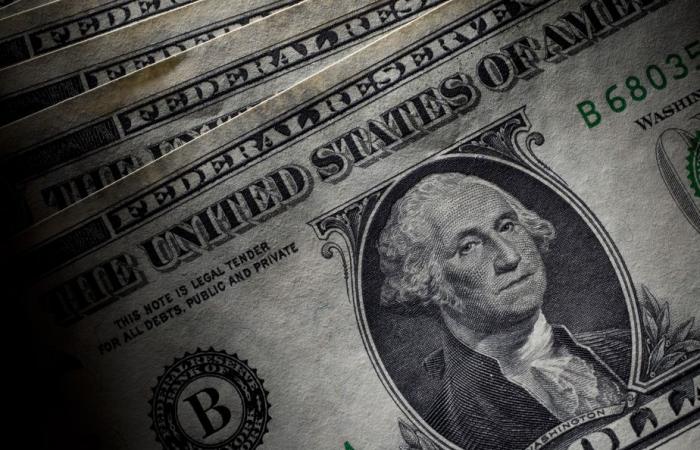Every Saturday, one of our journalists answers, along with experts, one of your questions on the economy, finances, markets, etc.
Posted at 2:02 a.m.
Updated at 6:00 a.m.
“What is “dedollarization” and how could it affect the Canadian dollar? » – René Masson
First of all, we must understand the origin of the word. When we talk about dollarization, we are referring to the use of the American dollar as an international currency, but also as a complement to a country’s currency.
“There are several developing countries, mainly in Latin America, in a large part of Asia and even in Africa, where the American dollar is very popular and even preferred to the local currency,” explains Pascal Bédard, master of teaching in the applied economics department of HEC Montréal.
The phenomenon of dollarization dates back to the end of the Second World War, when the greenback became a global reference currency through the consolidation of its presence in commodity transactions.
As of the first quarter of 2024, the U.S. dollar constituted about 59% of global foreign exchange reserves, according to data from the International Monetary Fund (IMF).
Towards dedollarization?
However, in 1999, the share of assets in US dollars constituted 71% of world foreign exchange reserves at the end of the fourth quarter, according to the IMF: this is a drop of 12 percentage points in 25 years.
While the phenomenon of globalization leads countries to want to diversify their assets, other reasons can explain this trend. Some want to reduce the presence of the US dollar in their international trade, especially for geopolitical reasons or distrust of the world’s dependence on the US dollar.
This is what is called the phenomenon of de-dollarization.
“The ease with which [États-Unis] have been able to implement asset freezes and sanctions against Russia for its invasion of Ukraine has caught the attention of some countries who fear one day being excluded from the system”, popularizes an analysis of RBC Bank in 2023.
The analysis cites Russia and Iran, which now use the Chinese yuan for their oil sales.
These countries are part of BRICS+ (Brazil, Russia, India, China, South Africa, Egypt, Ethiopia, Iran and the United Arab Emirates) whose relations are led by the same geopolitical desires of non-interference. According to the RBC, the possible financial infrastructures of this blockade would have “limited scope”.
“The US dollar continues to lose ground to non-traditional currencies in global foreign exchange reserves, but it remains the main reserve currency,” concludes a recent IMF report.
The currencies occupying second and third places in global foreign exchange reserves are still far behind the US dollar in the first quarter of 2024: the euro, with 20% of reserves, and the Chinese yuan, with 5%.
“The euro is stagnating a lot because there are a lot of internal tensions. It is a common currency, but countries are divided. This is not necessarily tempting for international portfolio holders,” the IMF report said.
The effect on the Canadian dollar
A priori, the effect of dedollarization on the Canadian dollar is uncertain, according to Pascal Bédard.
According to him, the most visible aspect would be linked to interest rates.
“If the phenomenon occurred on a widespread basis, American interest rates would tend to increase, and there would probably be a spillover effect in Canada,” notes the lecturer at HEC Montréal.
If the greenback were to depreciate significantly, it could also hurt Canadian export sectors, since import prices would no longer be as advantageous for U.S. markets.
” But at the same time, [l’appréciation de la devise canadienne] would help our purchasing power internationally,” believes Mr. Bédard.
He adds that de-dollarization would have to be very marked to observe a real short-term effect on the Canadian dollar.
“US markets are by far the most widespread, mature and complex, and are combined with credible institutions and a thriving economy. The combo of all that is difficult to replace,” he concludes.







